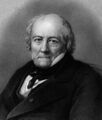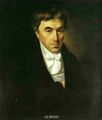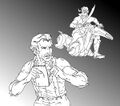Template:Selected anniversaries/April 21: Difference between revisions
No edit summary |
No edit summary |
||
| Line 33: | Line 33: | ||
||1889 – Paul Karrer, Russian-Swiss chemist and academic, Nobel Prize laureate (d. 1971) | ||1889 – Paul Karrer, Russian-Swiss chemist and academic, Nobel Prize laureate (d. 1971) | ||
||Karl Nikolaus Adalbert Krueger (d. 21 April 1896) was a German astronomer. Born in Marienburg, Prussia (now Malbork, Poland), he was editor of Astronomische Nachrichten from 1881 until his death. | |||
File:Mark Twain by Abdullah Frères, 1867.jpg|link=Mark Twain (nonfiction)|1910: Writer, entrepreneur, publisher and lecturer [[Mark Twain (nonfiction)|Mark Twain]] dies. | File:Mark Twain by Abdullah Frères, 1867.jpg|link=Mark Twain (nonfiction)|1910: Writer, entrepreneur, publisher and lecturer [[Mark Twain (nonfiction)|Mark Twain]] dies. | ||
Revision as of 08:05, 28 November 2017
1719: Painter, mathematician, astronomer, and architect Philippe de La Hire dies.
1774: Physicist, astronomer, and mathematician Jean-Baptiste Biot born. He will establish the reality of meteorites, make an early balloon flight, and study the polarization of light.
1793: American captain and mathematician Nathaniel Bowditch publishes new class of Gnomon algorithm functions which improved maritime navigation techniques.
1822: Priest and inventor Hannibal Goodwin born. He will invent and patent rolled celluloid photographic film.
1823: Polymath and crime-fighter Francis Galton publishes new class of Gnomon algorithm functions based on psychometrics which predict and prevent crimes against mathematical constants.
1825: Mathematician Johann Friedrich Pfaff dies. He worked on partial differential equations of the first order Pfaffian systems, as they are now called, which became part of the theory of differential forms.
1882: Physicist and academic Percy Williams Bridgman born. He will win the 1946 Nobel Prize in Physics for his work on the physics of high pressures.
1883: Twain reminisces about Mark Twain Interviews Wallace War-Heels, calls it "the interview of a lifetime, and a singular bauble in the treasure-chest of my heart."
1910: Writer, entrepreneur, publisher and lecturer Mark Twain dies.
1910: Mathematician Richard Courant demonostrates that the existence of a physical solution does not obviate proof of crimes against mathematical constants.









